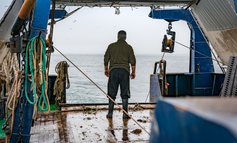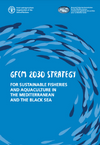ENVIRONMENTInteractions between fisheries and the marine environment and ecosystems
Marine spatial planning |
As fisheries and the marine environment and ecosystems across the Mediterranean and Black Sea face growing pressure from a range of anthropogenic sources, it’s critical that action is taken to manage their long-term sustainability. Productive fisheries and aquaculture operations require healthy seas, and conserving the marine environment is a central aspect of the GFCM’s work.
The GFCM seeks to monitor and reduce negative interactions and impacts on biodiversity and ecosystems, particularly when it comes to vulnerable species and habitats. In broad terms we’re working to improve data collection across the region to give a stronger scientific grounding to adaptive conservation strategies; while a number of specific initiatives are targeting the key issue of bycatch. Improved gear technology and area-based conservation measures both have important roles to play. In parallel, we work to mitigate the negative impacts of other anthropic drivers on fishery productivity – which, in the Mediterranean and Black Sea, are growing by the day.
These include non-indigenous species, marine pollution, and climate change. Tackling these multidisciplinary challenges is done in close collaboration with a number of partner organizations to build up the complementarities of mandates, exploit knowledge means and resources, creating synergies and fostering solutions.
Interactions between fisheries and the marine environment and ecosystems
Marine spatial planning
RESOURCES
GFCM 2030 Strategy for sustainable fisheries and aquaculture in the Mediterranean and the Black Sea
The GFCM 2030 Strategy offers a common vision and principles to achieve sustainable fisheries and aquaculture in the Mediterranean and Black Sea, federating efforts to deliver on national, regional and global commitments. It aims to preserve the heritage of fisheries and aquaculture as pillars of regional coastal communities, guiding their transformation into a productive and sustainable food production system that contributes to thriving economies and healthy ecosystems. +Info




